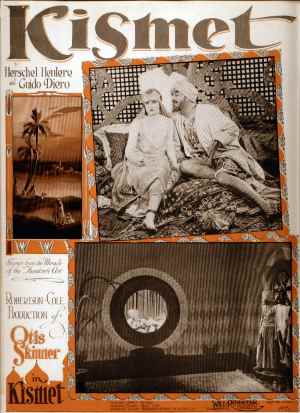
click on the image (119 MB). |
Published by Will Rossiter
Kismet -- Foxtrot (Piano/Vocal Score with lyrics by Herschel Henlere -- 1920)
Published by Jerome H. Remick & Co.
Deiro Rag -- piano arrangement (1913)
Published by B. Quattrociocche
Accordion Music Publisher
Allegro Deiro -- Rag Novelty
(Originally published and recorded as Deiro Rag)
The Breitenbush -- March
Deirina -- Polka-Mazurka
Guido's Royal March
Hand Grenade Throwers -- March
I Don't Care -- Polka (Version 1)
I Don't Care -- Polka (Version 2) Lido -- Tango
Lights and Shadows -- Waltz
Lola -- One Step Novelty
Los Bomberos -- March (I Pompieri)
Marines -- March
Moonlight -- Waltz
My Florence -- Waltz (Version 1)
My Florence -- Waltz (Version 2)
Neapolitan -- Polka
Pink Slippers -- Valse Moderato
Polka Variata - Varite Polka (1916)
Preparedness March
Queen of the Air
Royal Flying Corps -- March
Temperamental Rag -- Novelty
Valse Caprice, No. 1
Valse Pirouette
Western Stars -- March
Zampa -- Rag
Published by O. Pagani & Bro.
Accordion Music Publisher
Lido -- Tango
The Musketeers -- March (I Moschettieri)
Published by Accordion Music Publishing Co. (AMPCO) Owned by Pietro Deiro
Egypto -- Fantasia
Published by Kejving Musik (Sweden)
Deirina
Polka Variata
Published by Zampiceni Publications
Accordion Music Publisher
Allegro Deiro -- Rag
Deirina -- Mazurka
Moonlight -- Waltz
My Florence -- Waltz
Nicomede Music Company
Altoona, Pennsylvania
Guido Deiro's Royal Method for Piano Accordion, Vol. 1
- Accordionette Waltz
- Young Accordionist
- Little Accordion Player
- Torpedo March
- Veno - Fox Trot Duet (co-composed by Nicomede)
- King Boy - Fox Trot Duet (co-composed by Nicomede)
- The Peasant - Quadrille (co-composed by Nicomede)
- Jewel Waltz Duet
- Beautiful Girl Waltz
- Radio Waltz
- Minneapolis March Duet (co-composed by Nicomede)
(We think the following may be from) Guido Deiro's Royal Method for Piano Accordion, Vol. 2
- The Accordion Girl -- Waltz
- California -- Mazurka
- Dimples -- Polka
The Radio Folio -- A Choice Collection of Familiar Melodies, Beautifully Arranged for the Accordion
Unpublished Compositions (recorded on Columbia)
Dolores -- Waltz
Il Pentimento
Oracion Y Marcha Miltar
Tango Tosino
Unpublished Compositions (no known recordings)
The Miner's Song -- La canzone del minatore (1933)
Most of Guido Deiro's music for accordion was published by B. Quattrociocche of Steubenville, Ohio. Deiro was with the company from its inception; during its first year of existence (1916), Quattrociocche published thirty-six pieces, including Guido Deiro's Polka Variata (listed in the catalog as number 3).
Biaggio Quattrociocche wrote, "Guido Deiro had such a wonderful genius for composition. We had arranged that he would play whatever came to his mind, and I would write it down to create new compositions." See endnote 1
Probably in the late 1950s or early 1960s, Quattrociocche began selling his company to Zampiceni Publications in San Jose, California. Michael Zampiceni, the son of Joseph Zampiceni, recalled, "My recollection is that my father bought the rights to various pieces in a piecemeal fashion, buying the most famous pieces first. In 1961 our family took a business trip across the country which included a stop in Steubenville, Ohio. It was at this time that my father consumated the deal to buy the entire publication set." Some of Deiro's compositions were subsequently edited by Anthony Galla-Rini.
Some of Deiro's music was also published overseas. Count Guido Roberto Deiro, said, "Until recently (when the copyrights expired), I was receiving royalties for my father's music from SESAC."
Endnote 1: Biaggio Quattrociocche, from a letter to John Barsuglia dated April 29, 1955. Cited in "Ronald Flynn, Edwin Davison, Edward Chavez, The Golden Age of the Accordion (Schertz, Texas, Flynn Publications: 1992), 29."
Back
Next